SRINAGAR
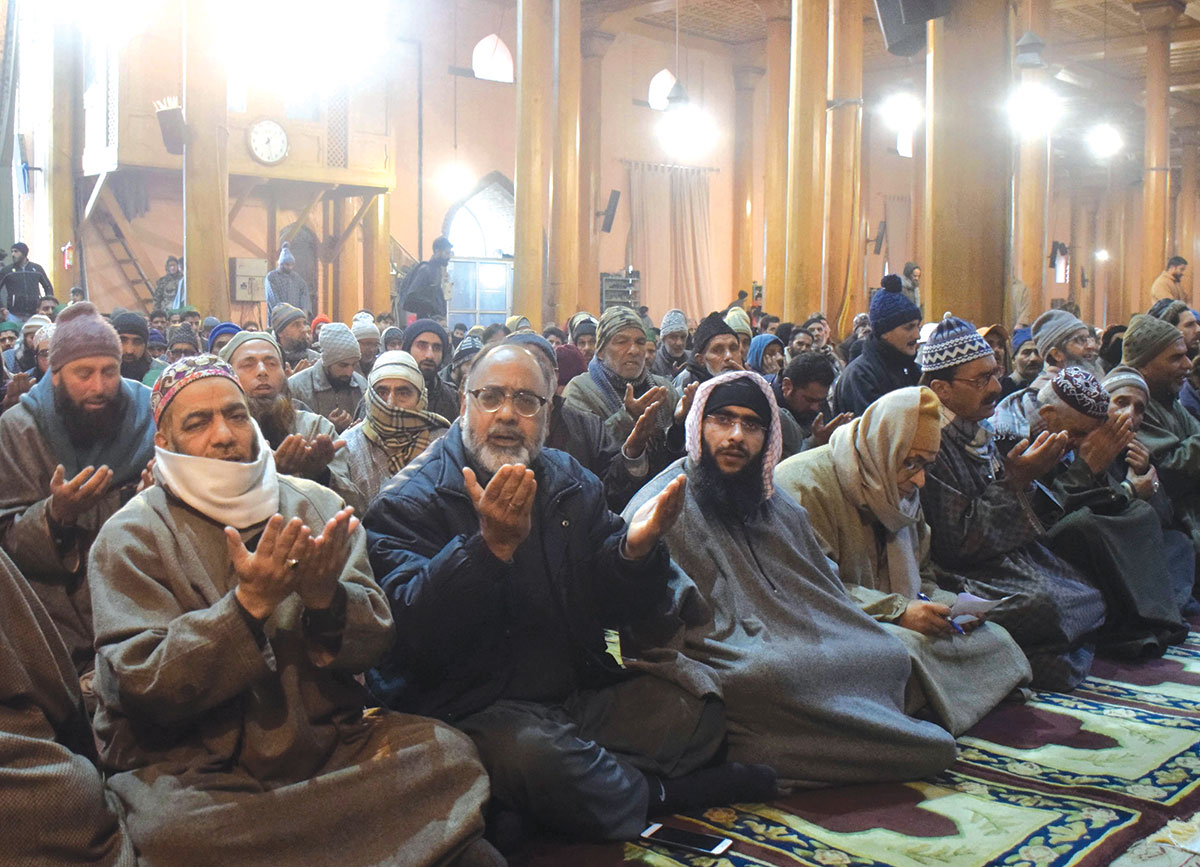
Almost 136 days after it was locked, a gathering of 76 faithful was permitted to offer Zuhr, the afternoon prayers, at Jamia Masjid on December 18, 2019. Some of those who joined the prayers at the fourteenth century mosque broke down in the process. Authorities had sealed all entry points to the Jamia Masjid, the biggest and the oldest in Kashmir, on August 5; the day Jammu and Kashmir’s special status was binned. Friday congregational prayers were not held at the mosque for 19 weeks, the longest gap in over 50 years. Since the mosque witnesses’ huge participation on Friday’s, rulers have been closing it for extended periods. During the Sikh rule in ninetieth century, it was converted into a granary. Post-partition, even elected regimes have been blocking entry to the mosque. During the unrests of 2008, 2010 and 2016, Associated Press quoting official data said the mosque was closed for at least 250 days cumulatively. Mirwaiz Umer Farooq is traditionally leading prayers at the Jamia, but he is under house arrest since August 5. A modest Friday gathering was over seen by a drone.
AWANTIPORA
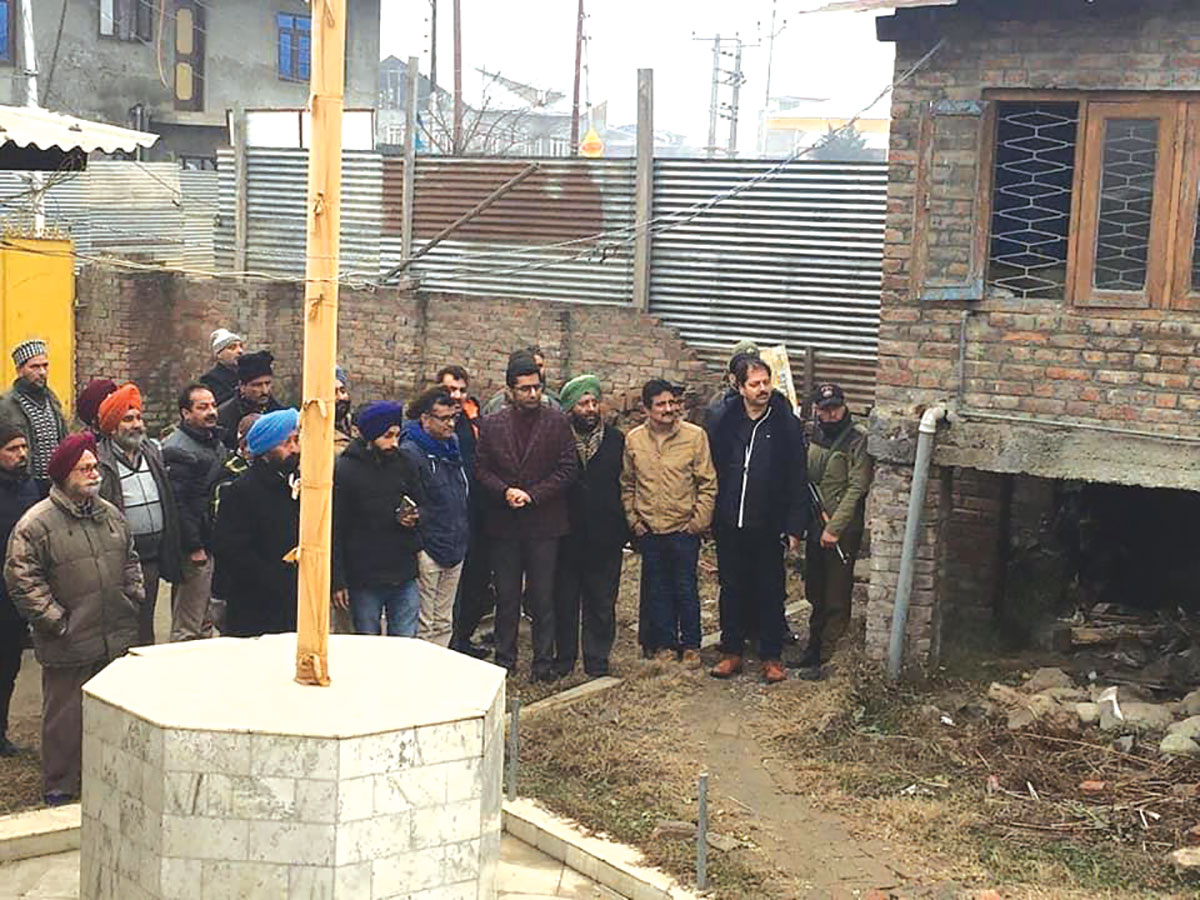
After spending many years in the courtroom, the government and the custodians of the highway Gurdwara managers in Srinagar periphery finally agreed that the Sikh religious place will be dislocated to pave way for the completion of the new Srinagar – Jammu national highway. The 72-year-old Gurdwara Damdama Sahib would now be relocated and would be reconstructed by the Public Works Department strictly as per the design provided by the Sikh community. The religious space that came up during the days of partition, especially to cater to the requirements of the incoming refugees, has been a major halt spot for the truckers and the visiting Sikh tourists. The community had gone to the court against its dislocation but finally, they have agreed to relocate, closer to the new highway, in the same area. The demolition is expected to be completed by the year end. It was one of the four major bottlenecks including a power line, a petrol pump and a water supply line, that the policymakers wanted to be removed for the new highway. Deputy Commissioner Srinagar, Shahid Iqbal Choudhary played a key role in bringing an end to the issue that will pave way for the BRO to start working on this patch.
SRINAGAR
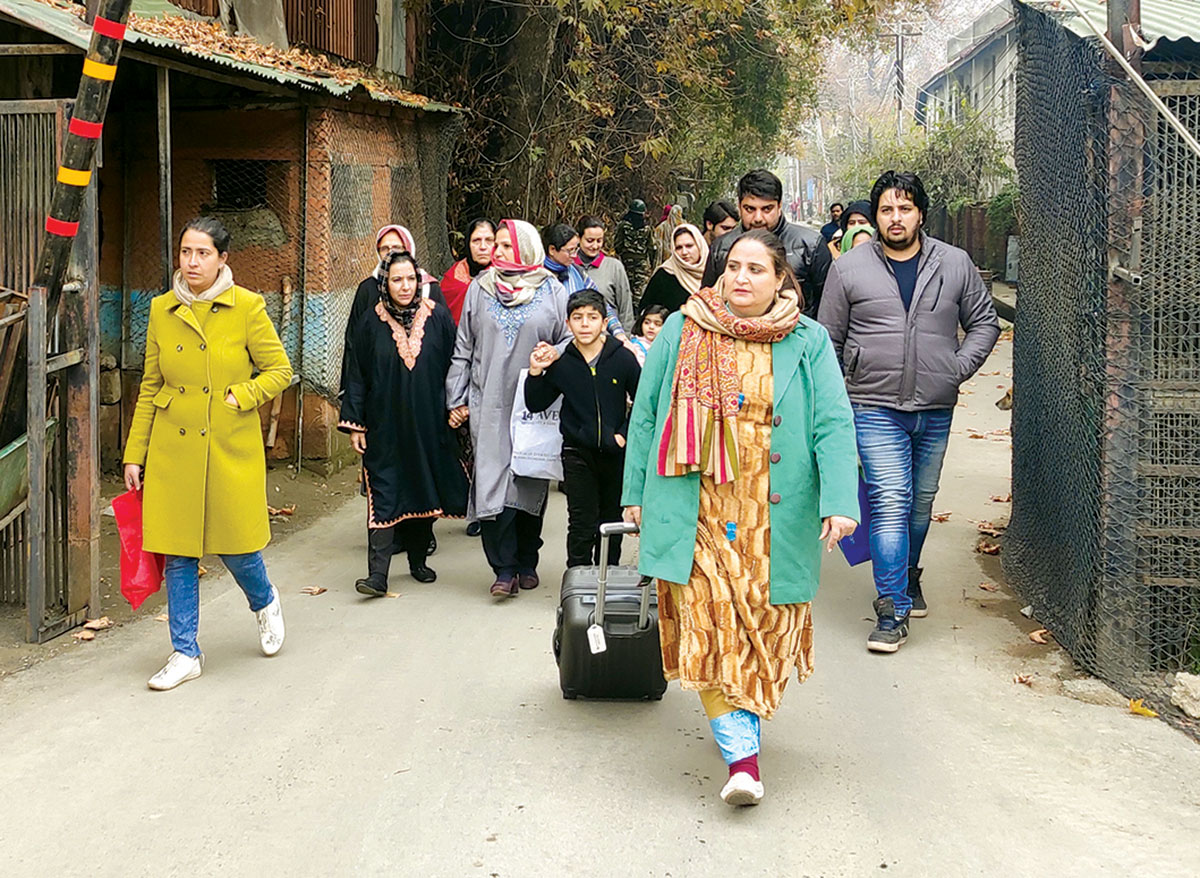
More than four months later, the central government is yet to decide if at all the Kashmir’s political class will move out of the lock and key. So far only few politicians who have signed bonds declaring they would not contribute to deteriorating of law and order have been sent home, according to NDTV. Jammu and Kashmir’s three former Chief Ministers – Dr Farooq Abdullah, Omar Abdullah and Mehbooba Mufti, are also in detention at three different places. NC sources suggest that they had to struggle to ensure a dental check-up of Dr Abdullah recently.
As the entire class is in detention, it has compromised the political differences as ‘strangle bed fellows’ have become friends. The Hindustan Times reported that erstwhile “sworn political enemies, now share food in the hostel and spend hours together”. Srinagar’s MLA Hostel, part of which has been converted into the jail, holds 33 political leaders, mostly former ministers and legislators of Peoples Democratic Party (PDP), National Conference (NC) and the Peoples Conference (PC).
The newspaper reported that “special curd” that comes to former minister Nayeem Akthar from his home on daily basis is being distributed among all 33 detainees. “Now every detainee has developed special liking for the curd prepared at the house of former bureaucrat-turned-minister,” the newspaper quoted relative of Akhter saying.
PC’s Sajjad Lone gets chocolates and fruits from his home almost daily. This supply is shared by the entire political class. Interestingly, Sajad and one of his recent disciples, have access to TV sets in their rooms. Others watch TV at common room or in the mess room at lunch or dinner. They watch NDTV, BBC, and Al-Jazeera.
Another interesting revelation is that Altaf Kaloo, erstwhile NC lawmaker from Pahalgam holds the responsibility of distributing food among the detained leaders. Three detainees – Sajjad Lone, Dr Shah Faesal and Waheed Para are reading too much these days, the newspaper reported. In spare time, some of them even play cards.
MONACO
 The second smallest country is creating a new history, a ring set with an exceptional old-cushioned Kashmir sapphire weighing 18.42 carats was auctioned for €1,110,000 (excluding costs), against a low estimate of €800,000. The pure blue gem carried a certificate of the Gübelin laboratory that reads: “…However, the most important event in the history of sapphire took place in the early 1880s. A landslide in the Himalayan mountains of Kashmir revealed a source of sapphires that has become legendary for the quality of its stones. The very special soft blue colour of Kashmir sapphires forges their identity; it is highly sought after by connoisseurs and collectors.”
The second smallest country is creating a new history, a ring set with an exceptional old-cushioned Kashmir sapphire weighing 18.42 carats was auctioned for €1,110,000 (excluding costs), against a low estimate of €800,000. The pure blue gem carried a certificate of the Gübelin laboratory that reads: “…However, the most important event in the history of sapphire took place in the early 1880s. A landslide in the Himalayan mountains of Kashmir revealed a source of sapphires that has become legendary for the quality of its stones. The very special soft blue colour of Kashmir sapphires forges their identity; it is highly sought after by connoisseurs and collectors.”
CHANDIGARH
Though it was a festival of military literature, somehow talking heads could not escape Kashmir. There were politicians, former strategists, military officers and former sleuths.
Amarjit Singh Dulat, former RAW boss, who’s Vajpayee Years is a detailed account of the 1990s, told the 3-day Military Literature Festival that Kashmiri Muslims are extremely moderate and are unlikely to fall in ISIS trap. This, he said, was despite the “increased radicalisation”.
Kashmir came under discussion as the experts were discussing Pakistan. Dulat argued that while everybody is engaging Taliban, why is Delhi giving it a miss? “A radicalised Afghanistan will be a big challenge,” Dulat was quoted saying. “Taliban is a medieval force and we might not agree with their ideology. We don’t have to like them. But we can talk to them and let’s see how a new dynamic can emerge.” Major General (retired) B N Sharma suggested opening “surreptitious channels” for engagement. Lt Gen (retired) Ata Hasnain said the main focus of the Taliban in the months to come will be Afghanistan. “It will not get into Khilafat at this stage. They will be busy fighting the local government.”
Maroof Raza talked about his Kashmir’s Untold Story- Declassified, a book he co-authored with Iqbal Chand Malhotra, saying it provides a novel perspective on the Kashmir conflict as it investigates the foreign interests that continue to influence its politics of the area. The book, he said, brings out the unusual role that the British played in Kashmir’s geo-politics even after 1947.
“In many instances such as the Operation Gulmarg, it was the British orchestrating a war against India using the Pakistani army as a front,” Raza was quoted as saying. “Sometimes our understanding of the issue is limited to the physical acquisition of land, or the religious aspect of it all, but the crisis is also played out to cater to foreign forces hoping to secure bigger political and economic gains.”
BJP general secretary Ram Madhav indicated that Delhi wants that Kashmir’s detained political class must come out and resume their political activity. He, however, did not reveal when that is going to be possible. Madhav reiterated the BJPs well known position that Jammu and Kashmir is integrated and the focus will now be on development.
“Very soon, we want to allow them to come out,” Madhav was quoted as saying. “When Article 370 was abrogated, close to 2,500 people were taken into preventive detention, today around 100 people are there. We want political activity to resume in the state. The remaining 100 people will be out soon and resume their political activity.”
Asked about Kashmiriyat, Madhav said: “We are hearing so many definitions about Kashmiriyat, the real definition will be when we see Kashmiri Pandits return their homes and hearths in Kashmir Valley, that should happen.”
Denying that Delhi intends to bring any demographic change, Madhav said: “We do not have any plans to do any demographic change. Whatever happens in the course of history, I cannot speak about it, but definitely, the Pandits and other disempowered sections of Kashmiri society should be empowered again.”
Terming Kashmir’s constituent assembly “illegal”, Madhav argued: “When Article 370 was inserted in Constitution of India, were the people of J&K consulted”? He asserted: “The way the whole thing was done was very constitutional and legal…The removal of Article 370 was also intended to provide and give political rights, dignity and certainly very civic and fundamental rights, which were being continuously denied. We believe that it was the best way to deal with the Kashmir problem.”
Madhav said his party “felt some difficulties in furthering our security agenda in Kashmir” after working with Mehbooba Mufti for a year and a half.
Along with Madhav, Congress MP Manish Tewari, Dulat and journalist Manoj Jishi were part of panel discussion Article 370 and the Death Knell of Terrorism. They disagreed with Madhav. They termed it “a tinderbox waiting to explode” and asserted that Delhi “undemocratically” revoked Article 370. Dulat said Kashmir is numb, disappointed and is waiting for the right time to respond.
Tewari blamed the Centre for setting a dangerous precedent by dividing a state into a UT thereby trampling the very spirit of our constitution. “We are a Union of States and what has been done by bifurcating Jammu and Kashmir is the most obnoxious move entailing serious repercussions for our Constitution and polity,” he said.
Echoing the views of other two both panellists, Tewari said that revocation had nothing to do with terrorism and had subverted all norms of due processes enshrined in Constitution. Terrorism, which the Central Government claims to put an end to with this one stroke, has had its genesis in the dismemberment of Pakistan and creation of Bangladesh. He asserted the “mindless decision” has alienated mainstream Kashmiri leaders too. “God forbid if the situation so warrants, we now literally have nobody to talk to,” he was quoted as saying.
CHINA
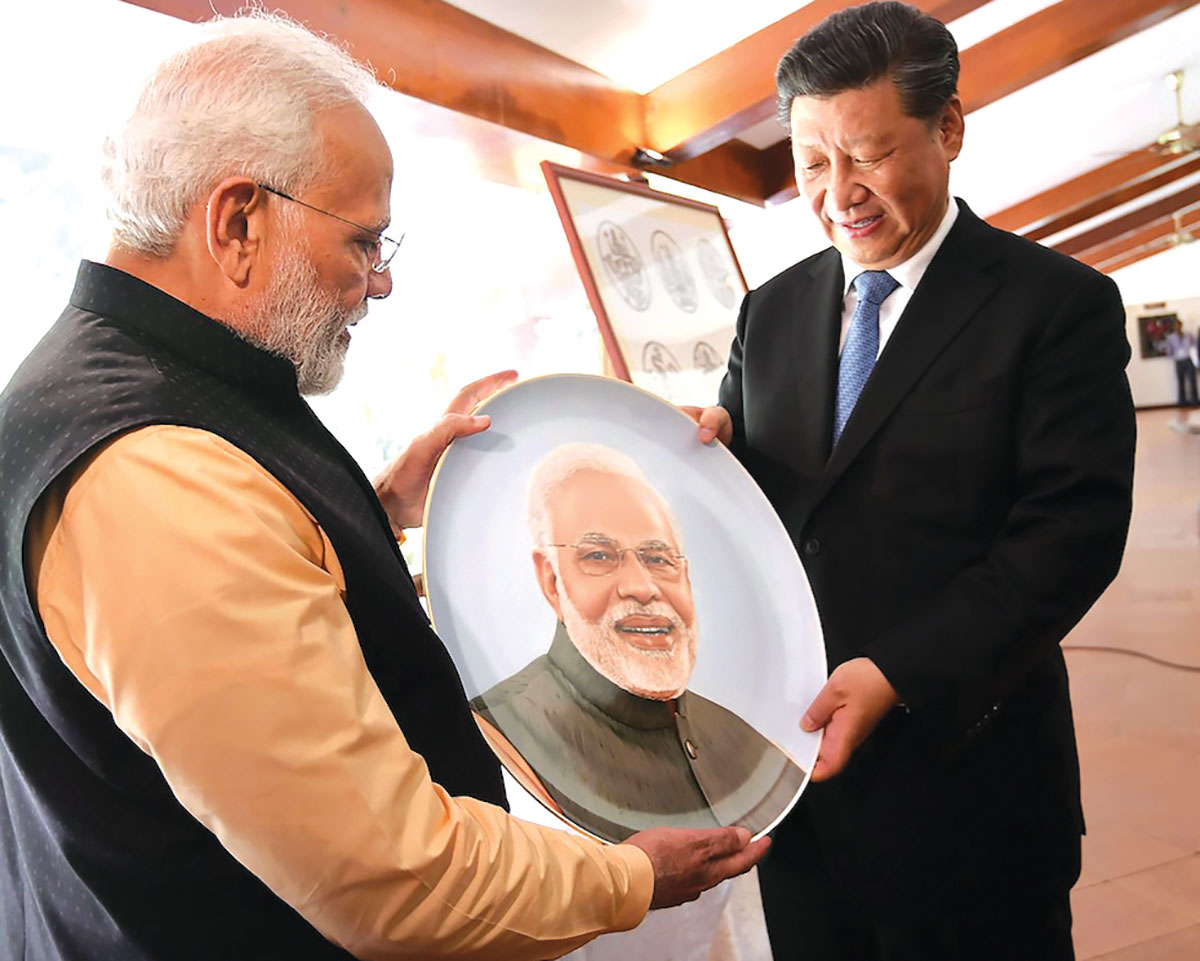
All of a sudden last week came the Reuters newsbreak that on Beijing request, the 15-member UN Security Council is planning a discussion on Kashmir. The next morning the meeting was reported to have been cancelled. China had sought a closed door briefing after Pakistan’s Foreign Minister Shah Mahmood Qureshi had written to the council indicating a possible escalation of tensions. The letter, according to the Chinese ambassador, Zhang Jun has alleged that India had removed parts of the fence on the Line of Control in five sectors and deployed Brahmos, anti-tank and other missiles.
Chinese request had come at an interesting time. Chinese foreign minister Wang Yi is flying to Delhi for a meeting with NSA Ajit Doval on December 21. At the same time, US Secretaries of State and defence Mike Pompeo and Mark T Esper were hosting their Indian counterparts S Jaishankar and Rajnath Singh for the 2+2 meeting.
Next morning, Kashmir did not figure in the meeting. Different media offered diverse reasons for the cancellation.
India TV said the Chinese ambassador to the SC Zhang Jun withdrew the request after he talked to US Permanent Representative Kelly Craft, who heads the Council for December. The Indian Express reported that France and the US were the key factors in rejecting the request. “France also joined in and said that the Kashmir issue has to be discussed bilaterally,” it said.
“France and other permanent members of the Security Council conveyed to China that the body was not the best forum to discuss the Kashmir issue, which ought to be handled bilaterally by India and Pakistan,” The Hindustan Times reported. “Non-permanent members of the council, such as Germany and Poland, too, showed no inclination for a discussion on Kashmir.”
One report said the SC lacked a brief on the current situation in Jammu and Kashmir from the UN Military Observers Group for India and Pakistan (UNMOGIP) that is stationed in Srinagar for around seven decades now. Yet another report said China still wants a meeting once the Council gets its report.
Last time, SC had an hour-long close-door meeting on Kashmir was on August 16, within days after the Article 370 was abrogated. The members, however, disagreed on the issuance of a joint statement. This was for the first time when the SC discussed Kashmir after 1971.
Reports indicate there will not be a meeting on Kashmir as now the SC will be reconstituted and new non-permanent members will be inducted in 2020.
MUMBAI
 On Article 370, it is the time for Rakhi Sawant, whose brother Rakesh Sawant has completed his film Mudda 370 J&K. The actress wants an exclusive screening of the film for Prime Minister Modi, Home Minister Amit Shah, Amitabh Bacchan and Uddhav Thakrey. Rakhi has said they were midway in the shoot when the Article 370 was abrogated. The low budget film features Hiten Tejwani, Manoj Joshi, Raj Zutshi, Zareena Wahab, Pankaj Dheer, Anita Raj, Anjan Srivastav, Anjali Pandey, and Tanvi Tandon. “When people watch this film, they will get to know about Article 370, why it has been revoked and what are the after-effects,” Rakhi was quoted as saying. Let the film be watched to understand if the abrogation had anything more that what the Home Minister already said!
On Article 370, it is the time for Rakhi Sawant, whose brother Rakesh Sawant has completed his film Mudda 370 J&K. The actress wants an exclusive screening of the film for Prime Minister Modi, Home Minister Amit Shah, Amitabh Bacchan and Uddhav Thakrey. Rakhi has said they were midway in the shoot when the Article 370 was abrogated. The low budget film features Hiten Tejwani, Manoj Joshi, Raj Zutshi, Zareena Wahab, Pankaj Dheer, Anita Raj, Anjan Srivastav, Anjali Pandey, and Tanvi Tandon. “When people watch this film, they will get to know about Article 370, why it has been revoked and what are the after-effects,” Rakhi was quoted as saying. Let the film be watched to understand if the abrogation had anything more that what the Home Minister already said!
REASI

Reasi’s mountainous Bhomag block, which once had gushing brooks and pristine water bodies, is facing one of the worst water crisis in its history. Due to the construction of a railway tunnel — which aims to connect the world’s tallest railway bridge being built at a height of 359 metres above the waters of the Chenab river — all fresh water sources in the surrounding villages have disappeared. Ground water that now gushes out of the tunnel is not potable for livestock or for irrigating crops as it comes mixed with concrete and chemicals sprayed inside the tunnel as part of the construction. The district has 14 railway tunnels and work is going on over a dozen tunnels right now. After the residents raised a hue and cry the work executing agencies — Konkan Railway Corporation Ltd, the Northern Railway and the local administration — started supplying drinking water through tankers.
Railways plans to complete the tunnels by 2020 but the experts are sceptical if at all the brooks will still fetch the same water. Geologist G M Bhat said in case the groundwater channels have been completely cut or blocked and diverted in the reverse direction, the old water sources won’t get revived even after the installation of the waterproof membrane inside the tunnels. In a bid to reverse the trend, some villagers are performing rituals at the local Nag Devta temple, which sits near what was once the origin of a gushing stream.
RAMBAN
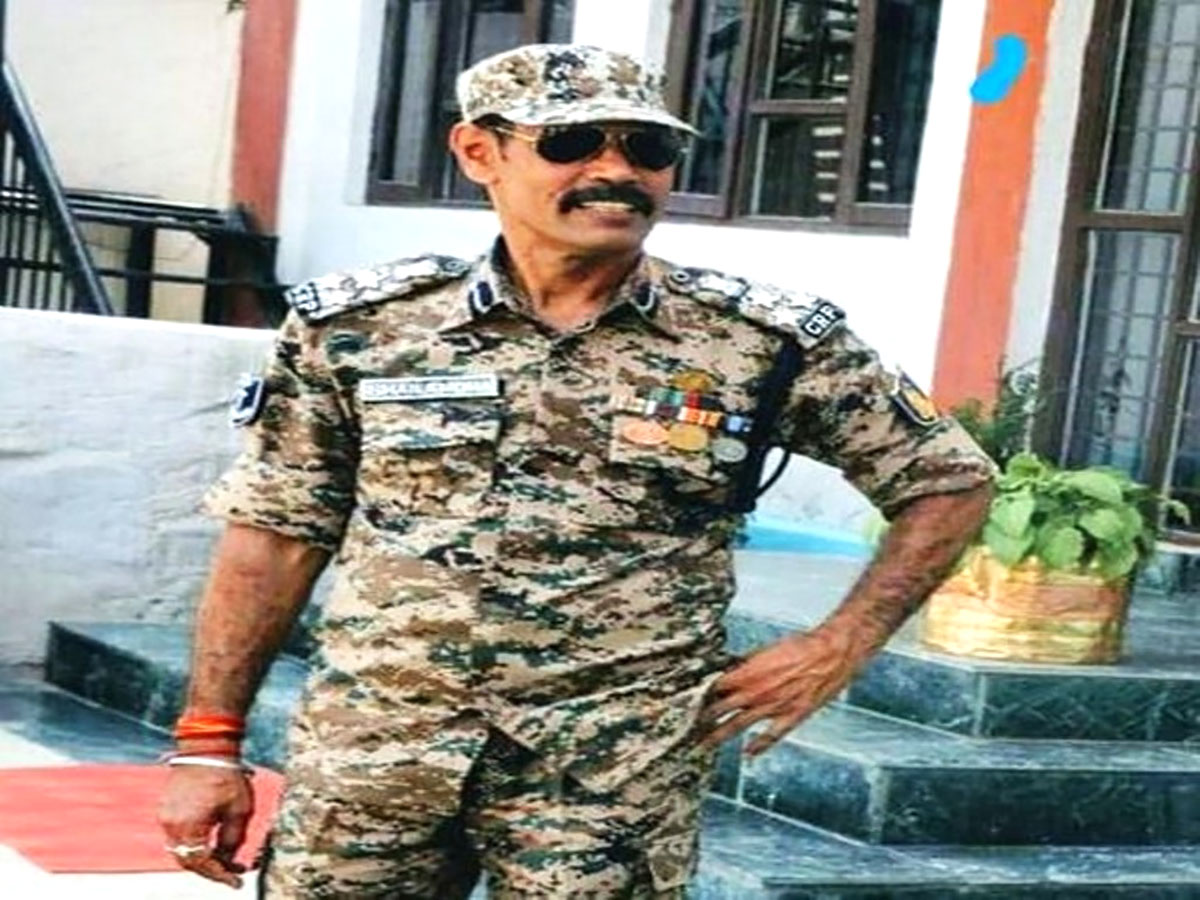
The national highway is exhibiting the impact of the weather crisis as it remained closed for a week. One evening, it witnessed a massive landslide that killed CRPF DIG posted for north Kashmir along with his driver as his personal security guard is fighting for his life. The IPS officer, Shilender Kumar Singh, was on his way to Baramulla when his vehicle was crushed by a huge boulder near Khooni Nallah (Samadi Morh). The highway remained closed for almost a week at a time when the low visibility closed the Srinagar airport for 10 days in a row.
CHANAPORA
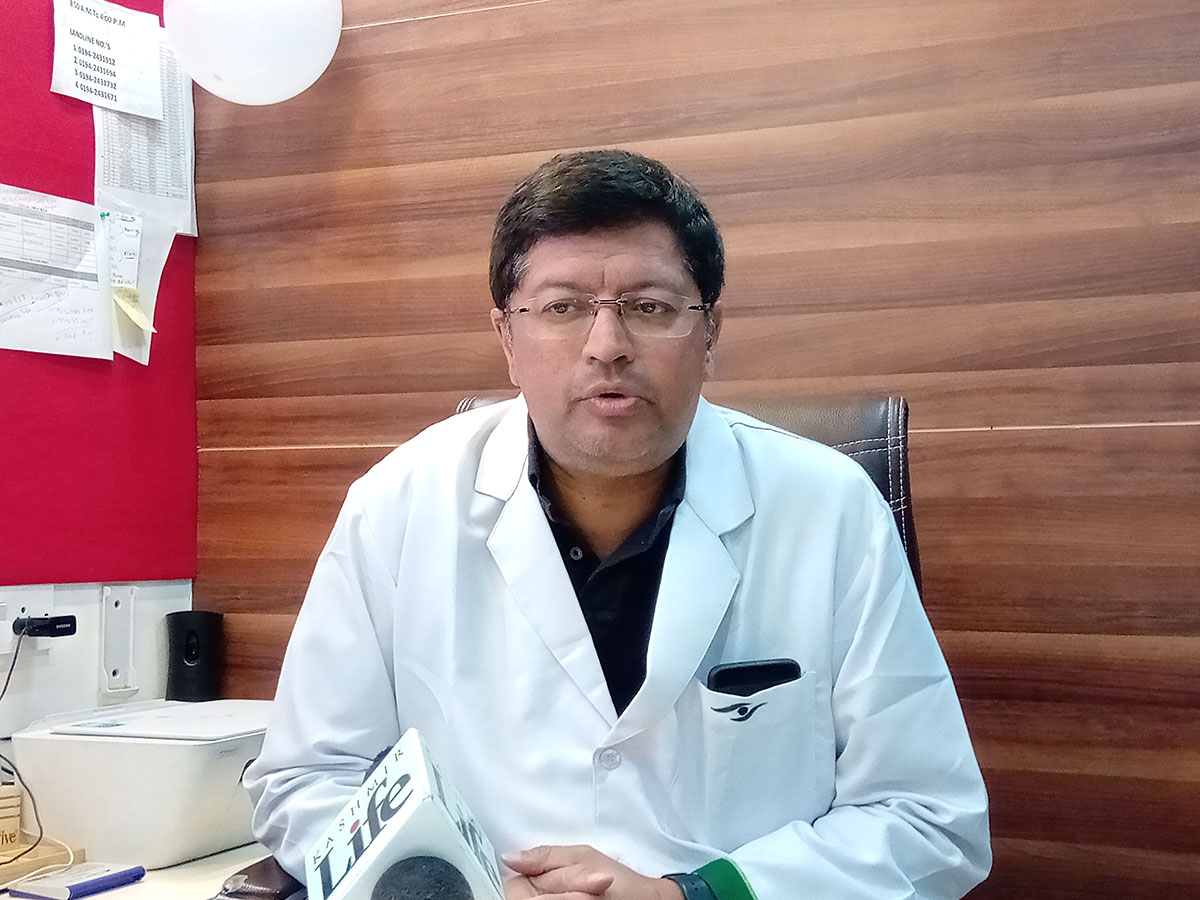
The Sharp Eyesight, an extension of a pan India ophthalmological chain has treated 52000 patients. Of them, more than 3000 underwent different surgeries. “Our speciality is in retina surgeries,” chain’s MD, Dr Sameer Sud said. “Rarely could you have successful retina surgeries in Kashmir earlier.” Besides, the hospital does refractive surgeries also.
For thousands of patients who used to fly out, this facility is managing a part of that. “We observed that people with minor sight issues were coming to Delhi at a huge cost. So we decided to get into Kashmir first,” Sud said. “We ensure one trip in a month of almost all our reputed doctors so that the patients do not feel the need to go outside for treatment.” The hospital is managed by 30 staffers and it has in-patient department as well.
HYDERABAD
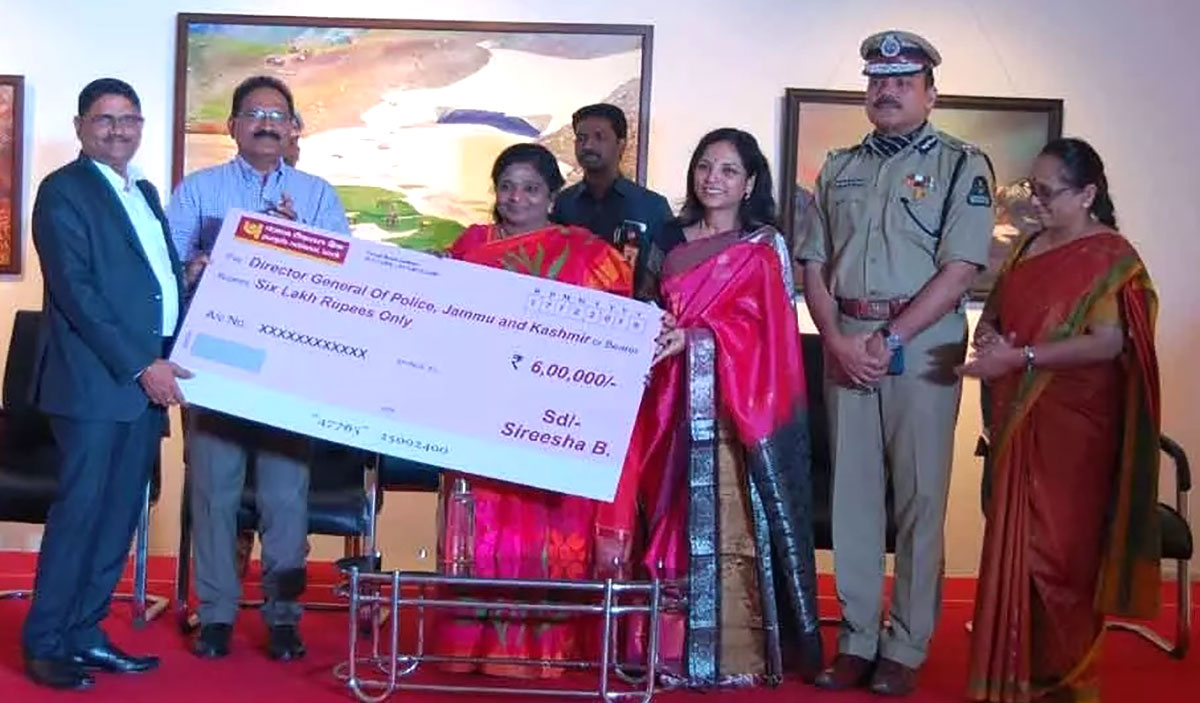
Any idea what Jammu and Kashmir’s top sleuth’s wife is doing? She paints. Last week witnessed yet another exhibition of Sireesha Srinivas, the wife of Dr B Srinivas, the intelligence chief of Jammu and Kashmir Police. Titled, Reminiscences (Kashmir on Canvas), the exhibition at the State Gallery of Art, Kavuri Hills, saw Ram Kumar Jayam, CEO, Backflipt purchasing 19 portraits for Rs 3 lakh. While the buyer is donating the art works to Maha Vidya Peetam Temple, Dundigal, the proceeds are going for a cause – to the welfare of the families of slain cops of Jammu and Kashmir and Telangana Police. In the five day exhibition, most of her 125 paintings were sold out for Rs 12 lakhs. She distributed it equally between Telangana and Jammu and Kashmir Police.
Sireesha, the Hyderabad born artist, has had put up her first solo exhibition in the Hungarian International Cultural Centre in Delhi in March 2017. Since then she has participated in a dozen art exhibitions at Jaipur, Jammu, Amritsar, Goa and Delhi. More than 25 artworks of Sireesha have found a place of pride in IFFCO, New Delhi, KRIFCO, Sheikh-ul-Alam International Airport, Srinagar, Sher-e-Kashmir International Convention Centre at Srinagar and a few corporate houses in Hyderabad and New Delhi, The Indian Express reported.
DELHI
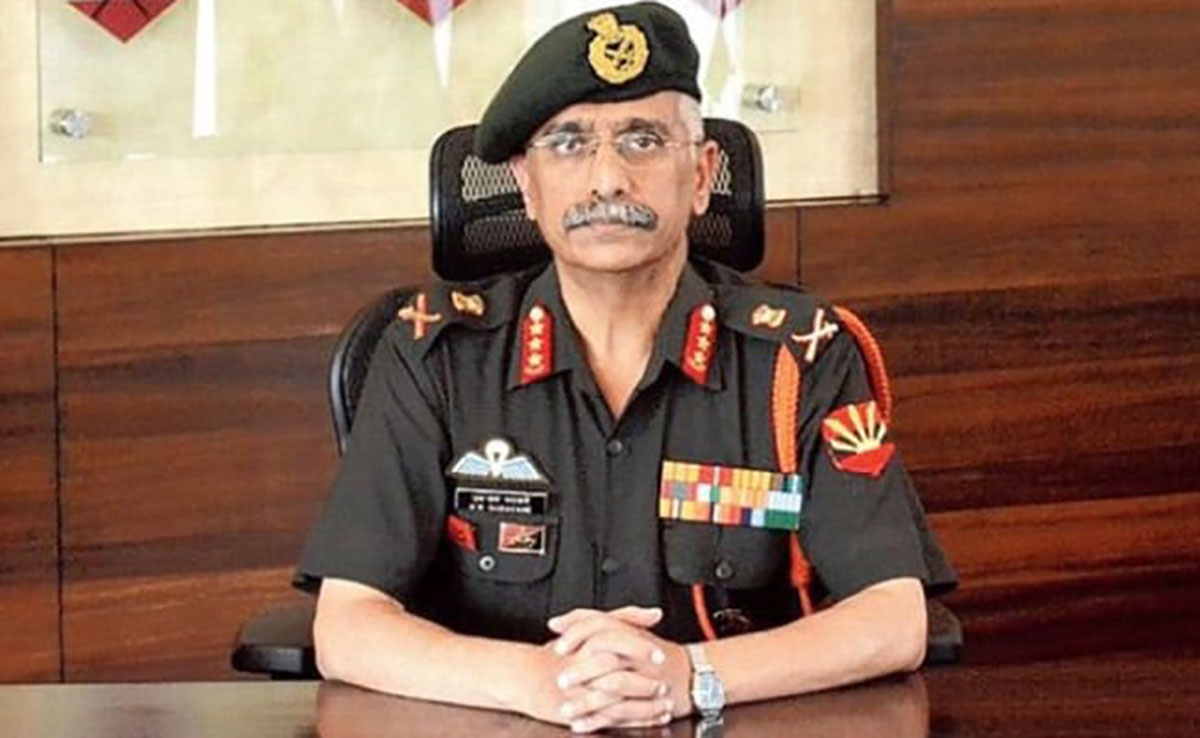
Lt Gen Manoj Mukund Naravane, who earlier led a Rashtriya Rifles (RR) battalion in Kashmir, is all set to lead India’s 1.3 million-strong army. He will take over on January 1. Before becoming the Vice Chief of Leh Army Staff, Gen Naravane headed the Eastern Command. In his 37 years of service, Naravane has served in numerous command and staff appointments in peace, field and highly active counter-insurgency environments in Jammu and Kashmir and the Northeast. He has also commanded a Rashtriya Rifles Battalion in Jammu and Kashmir and an infantry brigade on the eastern front. He was also part of the Indian Peace Keeping Force in Sri Lanka and had served as India’s defence attache at the Indian Embassy in Myanmar for three years. The General is a decorated officer who has been awarded the ‘Sena Medal’ (Distinguished) for effectively commanding his battalion in Jammu and Kashmir.















